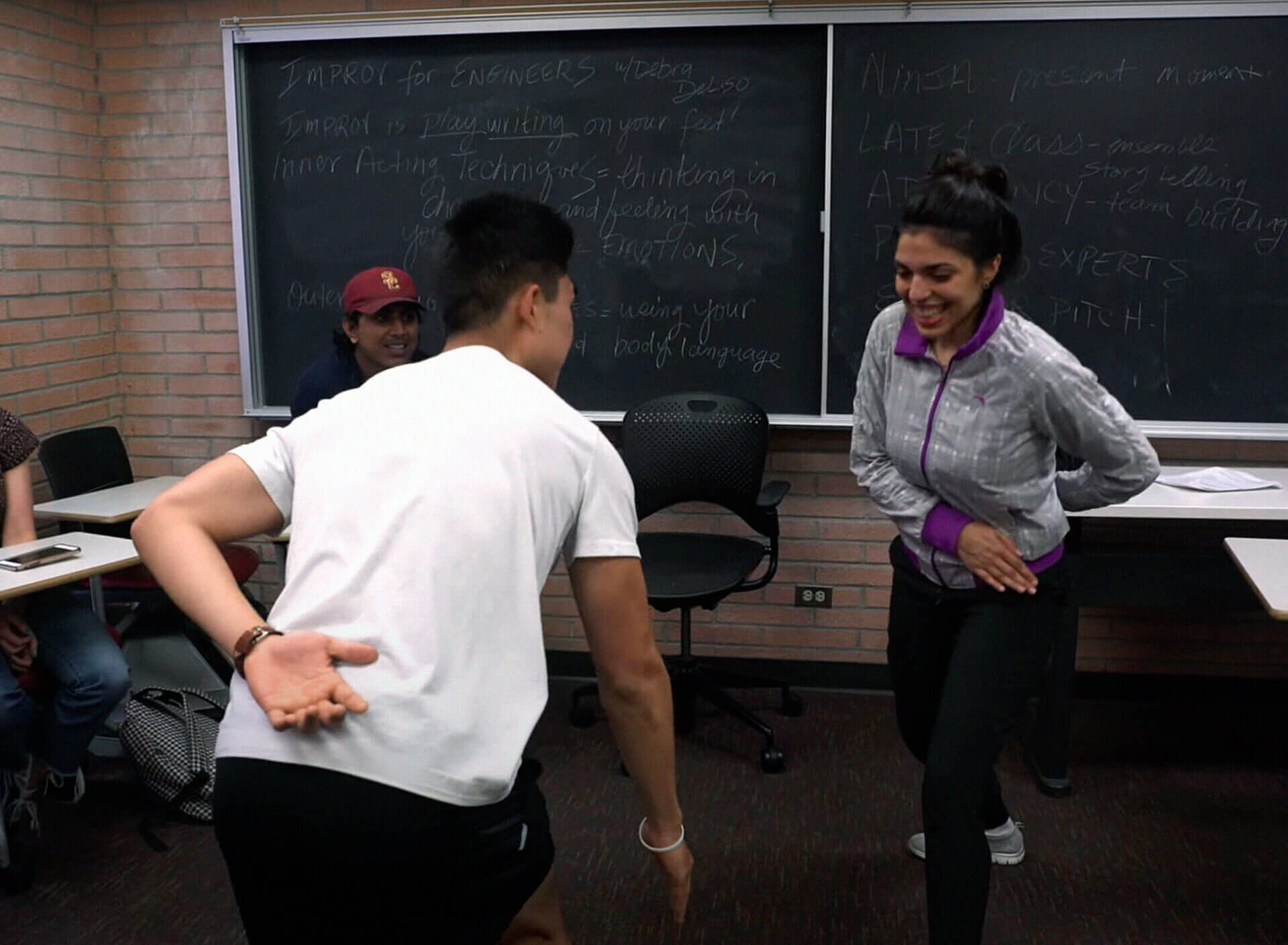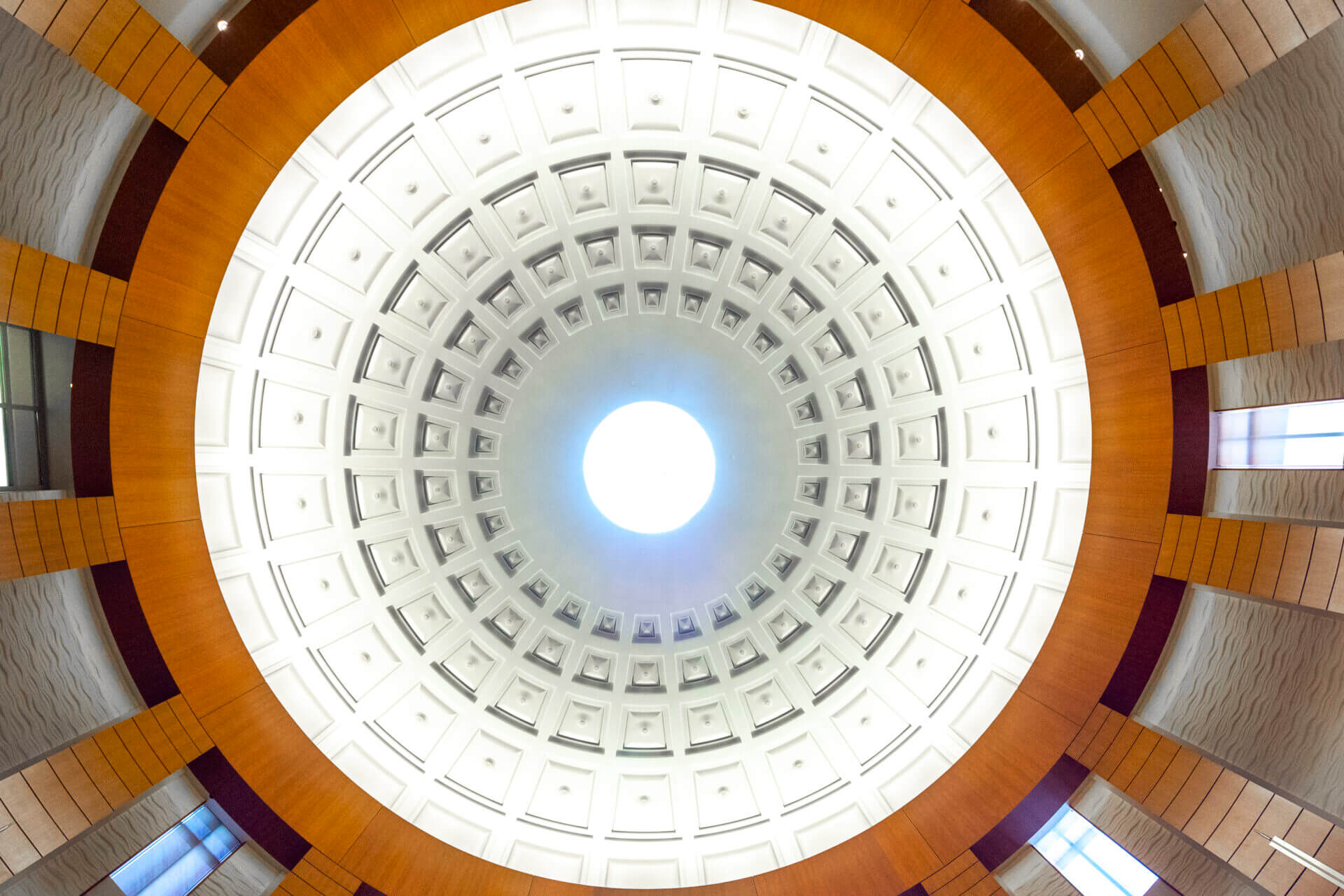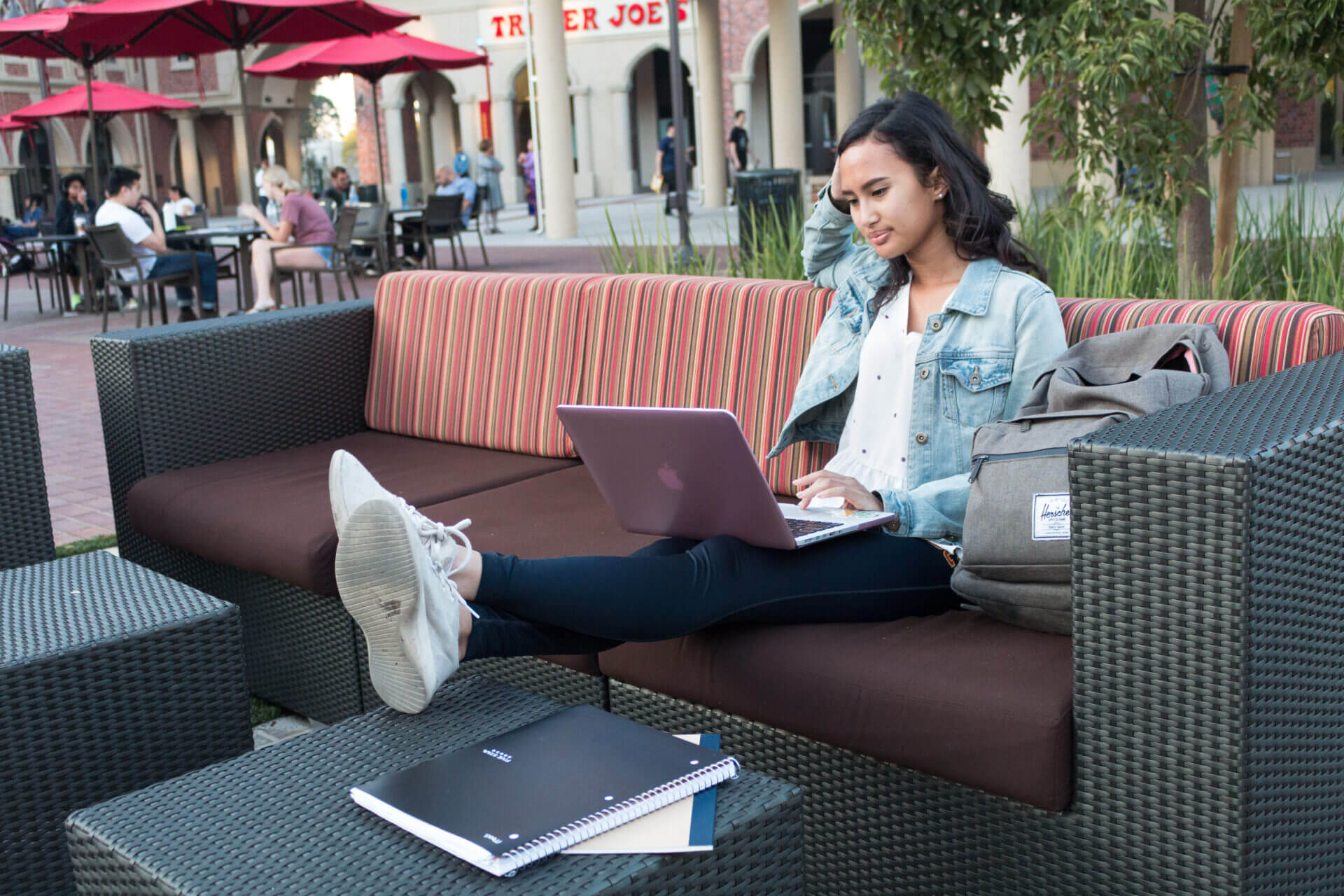Projects
The EiS program's co-curricular projects offer experiences beyond the classroom, as faculty work to foster conversations of engineering in society in the greater Viterbi community and beyond. These projects are grounded in principles of building agency, community, ethical awareness, and trust.
Communication
Engineering Moment Podcast
In this podcast, Viterbi students discuss the role of engineering in society and examine their potential to be force multipliers in the world.
Illumin Magazine
Illumin Magazine is an online publication written, edited, and published by undergraduate Viterbi students. Its mission is to explain the engineering behind the things we encounter every day.
The Hub
Academic writing and speaking support for engineering Ph.D. students; over 150 appointments in its inaugural year from all Viterbi departments with Ph.D. programs
Improv for Engineers
Improv for Engineers (IFE) is an embedded classroom innovation at EiS. We offer modules every semester to all EiS courses, as well as a IFE Master Class every semester which is open to all Viterbi students. IFE is a long standing co-curricular partnership between the USC Viterbi School of Engineering and USC School of Dramatic Arts, and it infuses improvisational theater training into the engineering curriculum by engaging students in spontaneous dialogue, role playing, storytelling, and scenario building, through dynamic social interactions.
In addition to classroom modules and the IFE Master Class, a new offering, Improv for Engineers Master Class in Virtual Reality (IFE-VR), has been added to the IFE programming portfolio. IFE-VR has been funded by a grant from the Engineering Information Foundation with Elisabeth Arnold Weiss as principal investigator. This new course is a leading educational application of VR, designed to leverage the immersive visual medium to create settings, theatrical style setups, and scenarios to enhance the learning outcomes and experience of IFE students. IFE-VR will feature a layered, multidimensional, and context-rich environment designed to accelerate the development of communication skills, stimulate creativity and imagination, and explore character, consciousness, and performance in a techno-human space. In 2022, IFE-VR will launch with a custom VR experience designed by Silicon Beach startup, Thinkin VR.
Keys to Life with Prof. Weiss
In partnership with ORSL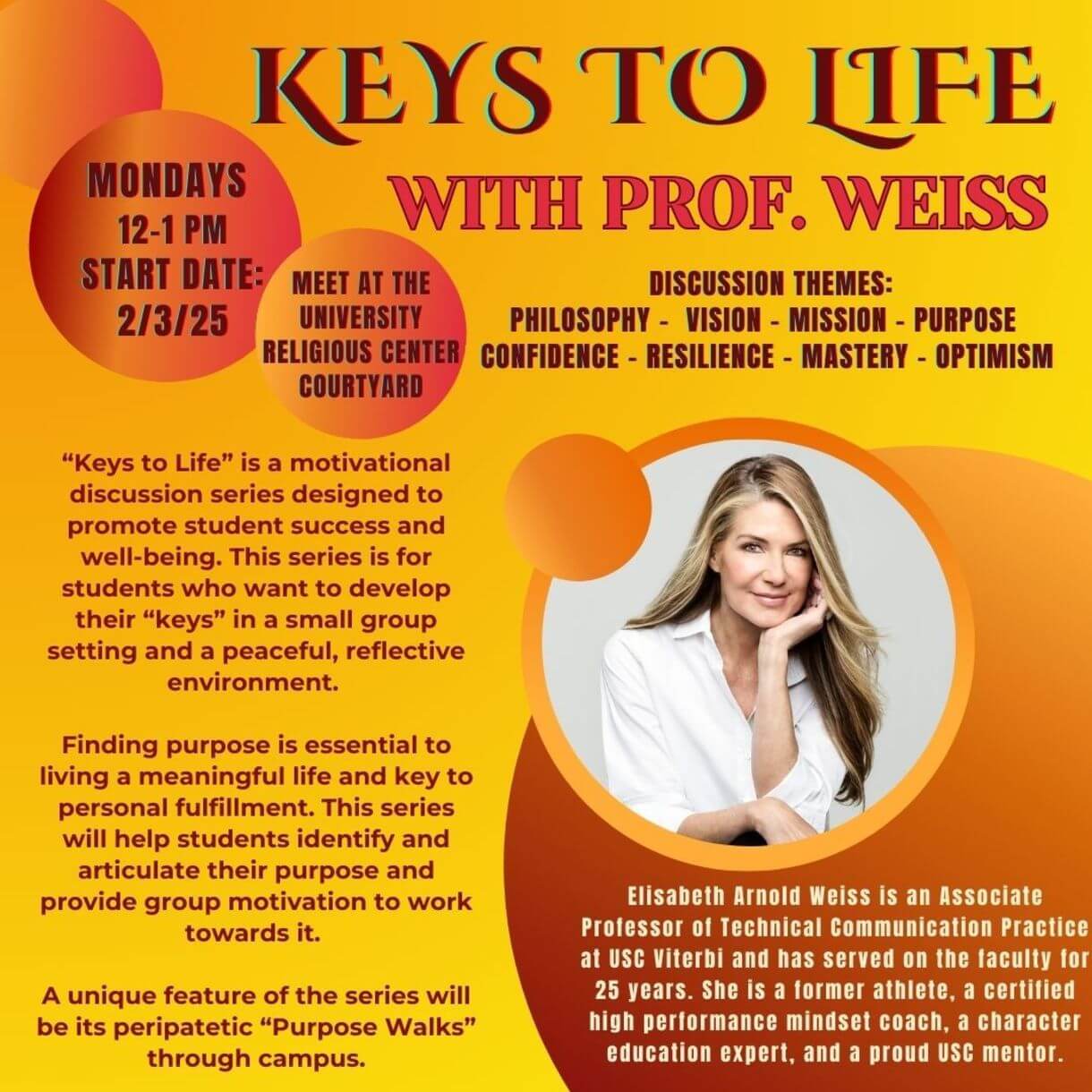
Ethics
The Viterbi Ethos Project
The Viterbi Ethos Project seeks to enrich within Viterbi students the practices and values of character that will distinguish a Viterbi engineer graduate.
Supported by the Coalition for Life-Transformative Education, the Viterbi Ethos Project includes a series of curricular and co-curricular projects designed to provide Viterbi graduates with a holistic educational experience.
Viterbi Conversations in Ethics
ETHOS live!
Ethics Bowl
In collaboration with the Philosophy Department, VITAL trains and sponsors the USC Association for Practical and Professional Ethics Intercollegiate Ethics Bowl team
The Good Life
Lockheed Martin Case Competetion

Education
USC Wrigley Institute for Environmental Studies Research and Recommendation Report
WRIT 340 students, enrolled in WRIT 340—Advanced Writing Communication for Engineers, have worked with the USC Wrigley Institute for Environmental Studies (WIES) in Spring 2017, Fall 2019, Spring 2020, Fall 2021, and will work with them again this semester—Spring 2022. The general goal, for each semester, has been to identify and develop research that could positively impact day-to-day operations and services at Wrigley.
Weingart Center
Viterbi students complete consulting projects for the Weingart Center, a local organization dedicated to arranging transitional housing for the homeless.
Accelerated Charter Elementary School Group Report
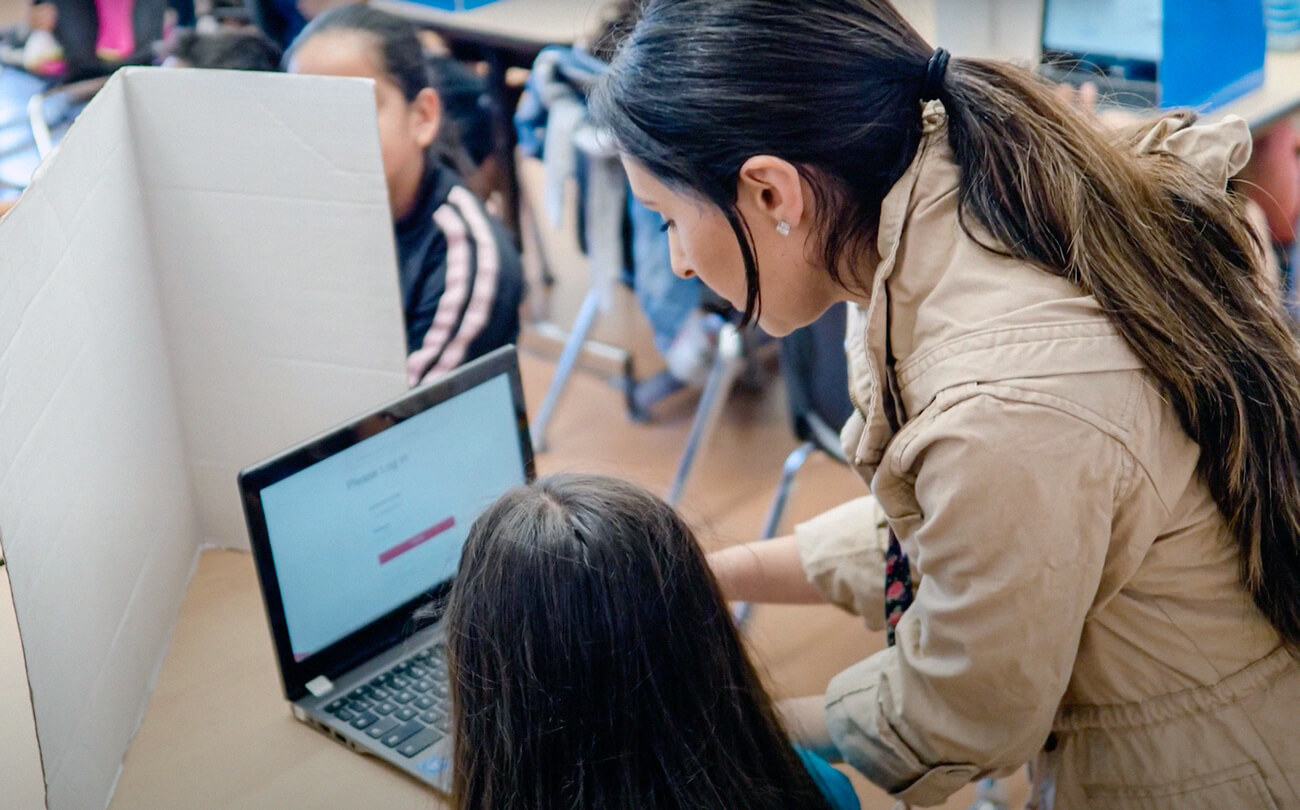
The STEM Consortium
Led by Gisele Ragusa, the STEM Education Consortium facilitates comprehensive and strategic planning and application for federal STEM education grants. The role of the Consortium is to convene and support groups of faculty who are interested in applying for STEM education grants and provide resources, ideas, lessons learned, best practices, and templates for collaborative grant authorship in these areas.
Contact Gisele Ragusa to get involved
The STEM Education Research Group
Led by Gisele Ragusa, the STEM Education Research Group has several strategic research partnerships with urban schools, colleges, and universities within the Los Angeles, South Bay and San Gabriel Valley areas that connect STEM student learning interventions to teacher inservice professional development beginning in preschool and extending into K-12, community colleges and universities. These research efforts are critical to the advancement of STEM achievement in Pre-K- 12 and to increasing access to and persistence in college and into workforces of historically underrepresented groups.
Contact Gisele Ragusa to get involved
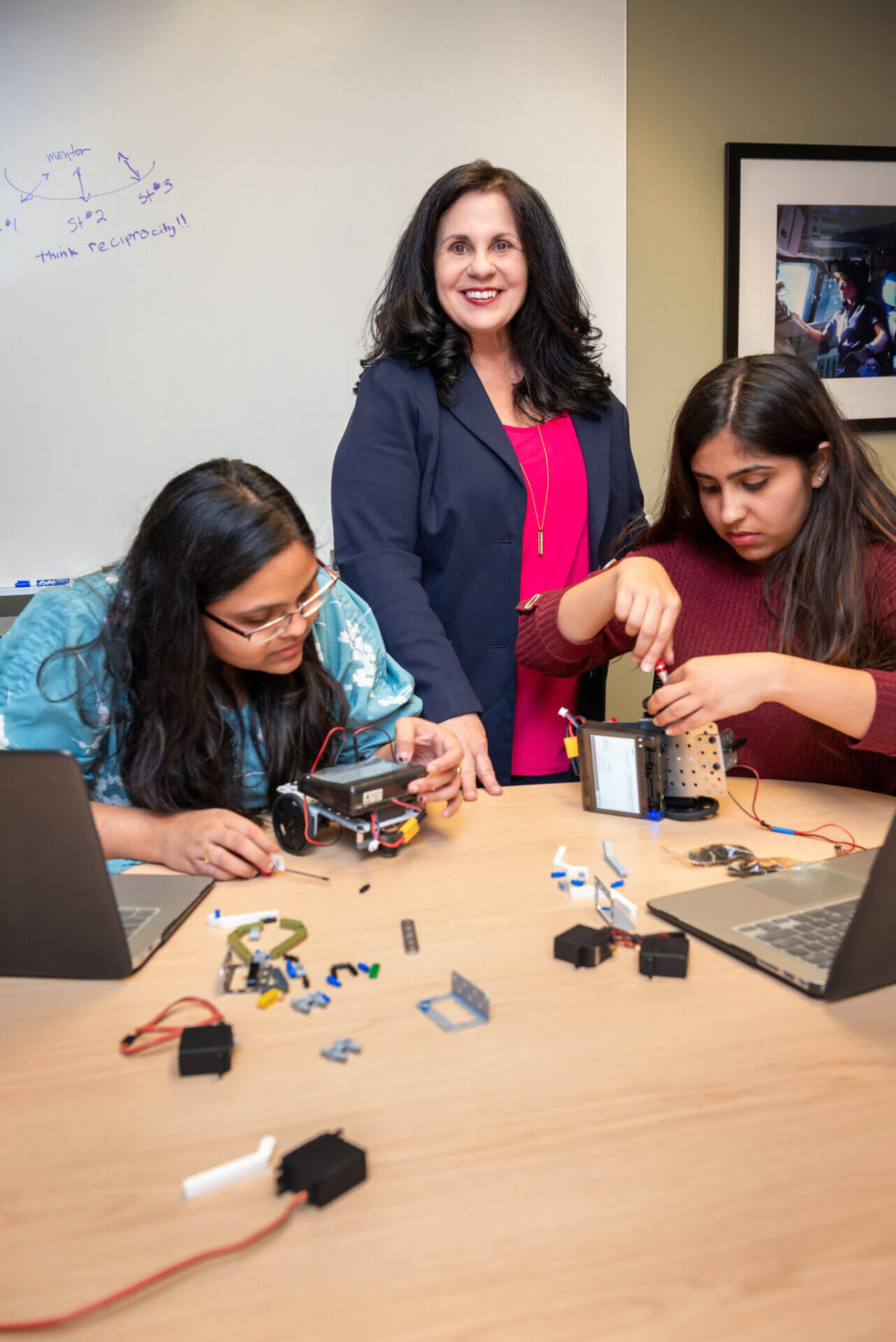
CURVE
The Center for Undergraduate Research in Viterbi Engineering (CURVE) Program provides a centralized resource for Viterbi undergraduate students to explore research opportunities early in their academic career. In partnership with faculty, CURVE facilitates the placement of Viterbi undergraduate students in research labs to gain hands-on experience on faculty-led projects. CURVE fellows receive stipends and participate in professional development opportunities that prepare them as future leaders in engineering and computer science research.
Engineering Foundation K-12 STEM Teaching Program
Led by Gisele Ragusa, this program will bring USC Viterbi undergraduate and master’s students into middle and high school classrooms, where they’ll work with local teachers to bring STEM subjects alive by applying them to solve real-world problems in engineering and computer science.
TEAM Teaching Engineers Athletes Mindset
Event series to promote human excellence across physical and mental domains. Guests share insights and experience developing high-performance mindset skills such as focus, trust, recovery, sustainability, energy management – essentials to functioning and flourishing in the future- as well as performance virtues such as confidence, motivation, teamwork, determination, perseverance, courage, and resilience – integral aspects of character development.
Contact Elisabeth Arnold Weiss to get involved
DREAM
Industry Mentorship speaker series
DREAM connects students with experienced industry professionals from a variety of tech and destination companies who help them create a vision for their futures, align their careers around purpose, and build character in the context of growth, reinvention, and constant change. Industry mentors discuss how professional challenges present opportunities for character and leadership development.
Vision Venture
Current Viterbi students interview recent alumni about first jobs and life after graduation, in this video project called “groundbreaking” by the Coalition for Life Transformative Education
Technology X Art
Co-curricular with Roski panel series featuring artists and technologists in discussion about exponential tech driven changes to our understanding of creativity, beauty, aesthetics, and the production of art.
Contact Elisabeth Arnold Weiss to get involved


